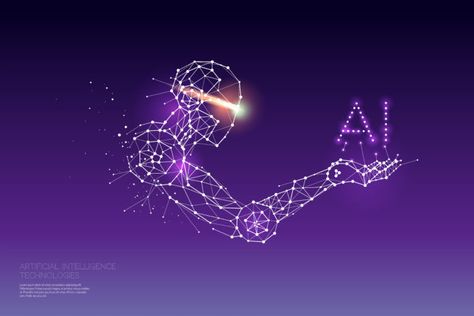Introduction

In the dynamic landscape of technology, Autonomous AI Agents have emerged as transformative entities, reshaping how we interact with data and artificial intelligence. As we delve into this fascinating realm, it becomes evident that these agents are more than mere programs—they represent a paradigm shift in integrating AI into our daily lives.
Table of contents
What are Autonomous AI Agents?
Autonomous AI Agents, at their core, are intelligent entities capable of decision-making and action execution without direct human intervention. These agents leverage advanced algorithms and machine learning models to analyze data, draw insights, and execute tasks autonomously.
How Do Autonomous AI Agents Work?
Here’s a breakdown of how they work:
Planning
- Goal definition: The agent starts with a predefined goal or objective it aims to achieve. This goal can be anything from completing a specific task to optimizing a process.
- Environment assessment: The agent continuously gathers information about its surroundings through sensors or other data sources. This data helps the agent understand the current context and potential obstacles.
- Plan generation: The agent generates plans or strategies for achieving its objectives based on the goal and environment information. This may involve planning actions, choosing the right tools, and anticipating potential outcomes.
Decision-making
- Data analysis: The agent analyzes the available data, including sensor readings, past experiences, and learned models, to understand the situation and predict potential outcomes of different actions.
- Action selection: Using reinforcement learning or other decision-making algorithms, the agent selects the action that it believes will maximize its chances of achieving its goal.
- Adaptation and learning: The agent continuously learns from its experiences. It monitors the results of its actions and updates its knowledge base and decision-making processes based on the new information.
Tools and Resources
- LLMs (Large Language Models): These act as the agent’s brain, providing the ability to understand and generate human-like language for communication and reasoning.
- Sensors and actuators allow the agent to perceive and interact with its environment physically.
- Computing power: Autonomous agents require significant processing power to handle complex calculations and data analysis.
Review and Feedback
- Monitoring performance: The agent continuously monitors its performance and evaluates whether its actions lead it closer to its goal.
- Feedback loop: The agent uses the feedback to adjust its plans and decision-making processes in real time. This ensures the agent can adapt to changing environments and learn from mistakes.
Role of Data Science in Autonomous AI Agents
Data science plays a fundamental role in developing and operating autonomous AI agents. These agents rely heavily on data for various purposes, including:
Training and Development
- Machine learning models: Data science provides the tools and techniques to train the various machine learning models that power autonomous agents. These models require large datasets for learning and refining their capabilities.
- Environment understanding: Data science helps analyze sensor data and other information to understand the agent’s environment comprehensively. This includes understanding the physical space, identifying objects and obstacles, and analyzing dynamic situations like traffic flow.
- Decision-making: Data science helps develop algorithms and models for decision-making based on the agent’s goals and the current situation. Historical and real-time data are used to improve the accuracy and efficiency of these decisions.
Performance Monitoring and Improvement
- Model evaluation: Data science provides tools for evaluating the performance of the agent’s models and identifying improvement areas. This involves metrics like accuracy, efficiency, and safety and helps continuously refine the agent’s capabilities.
- Data analysis: Data science helps analyze operational data to identify trends, patterns, and anomalies that may indicate potential problems or opportunities for optimization.
- Feedback loop: Data science helps create a feedback loop where the agent’s actions and decisions are analyzed and used to update its models and improve its performance over time.
Specific Applications
- Autonomous vehicles: Data science helps train models for object detection, path planning, and safe navigation in complex environments.
- Robotic process automation: Data science helps analyze and automate repetitive tasks, improving efficiency and accuracy.
- Virtual assistants and chatbots: Data science helps develop natural language processing models for understanding human language and generating responses honestly and informally.
- Personalization: Data science helps personalize the experience of interacting with autonomous agents by tailoring their responses and actions to individual user preferences and contexts.
Challenges and Considerations
- Data quality and bias: The quality and bias of the data used to train and operate autonomous agents can significantly impact their performance and fairness. Data science plays a crucial role in ensuring data quality and mitigating bias.
- Privacy and security: Data collected by autonomous agents raises privacy and security concerns. Data science can help develop techniques for anonymizing and protecting sensitive data while still allowing the agent to learn and function effectively.
- Explainability and interpretability: Understanding how autonomous agents make decisions is crucial for building trust and ensuring accountability. Data science can help develop techniques for explaining the reasoning behind the agent’s actions and decisions.
Data science is essential for developing and operating safe, reliable, and efficient autonomous AI agents. As independent agents continue to evolve, the role of data science will become even more critical.
Types of Autonomous AI Agents
Understanding the diverse landscape of Autonomous AI Agents is essential for grasping their extensive applications. Let’s explore some prominent types:
- Reactive Machines: Reactive Machines operate based on predefined rules and responses. They excel in specific tasks but cannot learn or adapt to new situations.
- Limited Memory: Limited Memory agents incorporate past experiences to enhance decision-making. These agents are adept at handling dynamic environments and evolving scenarios.
- Theory of Mind: Theory of Mind agents possess a level of cognitive understanding, allowing them to interpret human emotions and intentions. This advanced type opens avenues for more sophisticated human-machine interactions.
- Self-Aware Agents: Self-Aware Agents represent the pinnacle of autonomy. They understand their environment and tasks and possess self-awareness, enabling them to reflect on their capabilities and limitations.
Top Autonomous AI Agents
Here are 10 of the most prominent autonomous AI agents as of December 2023, along with brief explanations:
- AgentGPT
- AutoGPT
- BabyAGI
- JARVIS/HuggingGPT
- SuperAGI
- MicroGPT
- Agent-LLM
- Xircuits
- ChaosGPT
- Tasker
Why Is There A Need for Autonomous AI Agents?

The need for autonomous AI agents is becoming increasingly apparent in today’s rapidly evolving world. These intelligent systems can operate independently, learn from their experiences, and make decisions without human intervention. They offer a range of benefits that can significantly impact our lives, work, and society.
Here are some key reasons why autonomous AI agents are essential:
- Automating Repetitive Tasks: Autonomous agents can automate many repetitive and mundane tasks, freeing up human time and resources for more creative and strategic endeavors. This can increase productivity, efficiency, and cost savings in various industries, from manufacturing and healthcare to customer service and finance.
- 24/7 Availability: Unlike humans, autonomous agents are not limited by fatigue or the need for sleep. They can operate 24/7, 365 days a year, ensuring critical tasks are always completed on time and without interruption. This can particularly benefit network security, monitoring, and process control applications.
- Improved Accuracy and Decision-Making: Autonomous agents can analyze large amounts of data and identify patterns that would be difficult or impossible for humans to detect. This allows them to make more informed decisions and take actions optimized for specific goals. For example, autonomous AI systems improve financial trading, diagnose diseases, and personalize education.
- Adaptability and Scalability: Autonomous agents can be designed to adapt to changing conditions and learn new information as they encounter it. This makes them highly versatile and scalable, enabling them to be used in various applications and environments. As the technology continues to develop, autonomous agents are expected to play an increasingly important role in complex real-world systems.
- Increased Safety and Efficiency: Autonomous agents can be used in dangerous environments, replacing humans and reducing the risk of accidents and injuries. Additionally, they can be used to optimize complex processes and systems, leading to increased efficiency and productivity.
Future Predictions
Autonomous AI agents are poised to revolutionize many aspects of our lives. They have the potential to automate tasks, improve efficiency, and make our lives easier. Let’s explore some potential future predictions for autonomous AI agents:
Increased adoption across industries:
- Healthcare: AI agents will assist doctors in diagnosis, treatment, and surgery. They will analyze medical data and suggest personalized treatment plans.
- Transportation: Self-driving cars and drones will become commonplace, leading to safer and more efficient transportation systems.
- Manufacturing: AI agents will manage factories and optimize production processes, increasing productivity and reducing costs.
- Customer service: Virtual assistants will handle most customer service inquiries, providing 24/7 support and personalized recommendations.
- Education: AI tutors will personalize learning experiences and provide feedback to students.
Enhanced intelligence and capabilities:
- Improved decision-making: AI agents will improve in complex situations, even with limited information.
- Greater adaptability: AI agents will be able to learn and adapt to new situations and environments more quickly.
- Enhanced creativity: AI agents can generate new ideas and solutions to problems, boosting innovation across various fields.
- More natural interactions: AI agents will be able to communicate and interact with humans more naturally, making them easier to use and accept.
Impact on society and the workforce:
- Increased productivity and efficiency: AI agents’ automation will free human workers to focus on more creative and strategic tasks.
- Job displacement: Some jobs will be lost due to automation, but new jobs will be created to develop and maintain AI systems.
- Ethical considerations: Concerns about bias, privacy, and safety will need to be addressed to ensure the responsible development and use of AI
Here are some specific examples of potential future applications of autonomous AI agents:
- AI doctors performing surgery in remote locations.
- Self-driving cars that can navigate complex city environments.
- AI-powered robots that can clean homes and offices.
- Smart assistants that can anticipate your needs and provide personalized recommendations.
- AI tutors that can provide individualized instruction to students.
Challenges and Limitations of Autonomous AI Agents
Without continuous human intervention, autonomous AI agents pose various challenges and limitations. These challenges span technical, ethical, and societal domains, and addressing them is crucial for the responsible development and deployment of AI systems. Here are some key challenges and limitations associated with autonomous AI agents:
- Lack of Common Sense and Understanding: AI systems may lack common sense reasoning and a deep understanding of the world, making them prone to misinterpretation of situations or making decisions that seem irrational to humans.
- Ethical Concerns: Autonomous AI agents can raise ethical questions, such as accountability for their actions, biases in decision-making, and the potential for unintended consequences. Decisions made by AI systems may not align with human values, leading to ethical dilemmas.
- Security Risks: Autonomous AI agents are susceptible to security threats, including malicious attacks, hacking, and adversarial manipulations. Ensuring the security and robustness of AI systems is a critical challenge.
- Data Privacy Issues: Autonomous AI agents often require large amounts of data for training and operation. Managing and protecting sensitive information raises privacy concerns, primarily when AI systems process personal or sensitive data.
- Interpretability and Explainability: Many AI models, especially deep learning models, are often considered black boxes, making it challenging to interpret their decisions. Lack of explainability can lead to distrust, hinder adoption, and make diagnosing and correcting errors difficult.
- Limited Adaptability to Dynamic Environments: Autonomous AI agents may struggle to adapt to dynamic and unpredictable environments. They may be limited in their ability to handle novel situations, changes in context, or evolving scenarios.
Addressing these challenges requires a multidisciplinary approach involving researchers, policymakers, ethicists, and industry stakeholders to ensure responsible and beneficial social integration of autonomous AI agents. Ongoing research and development are essential to mitigate these challenges and unlock the full potential of autonomous AI.
Conclusion
In conclusion, Autonomous AI Agents represent a watershed moment in the evolution of data science and artificial intelligence. Their impact on industries, coupled with the challenges they pose, underscores the need for responsible development and deployment. As we navigate this transformative era, embracing the potential of Autonomous AI Agents is not just a choice—it’s a necessity for a progressive and technologically enriched future.




